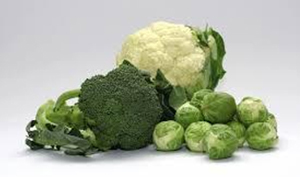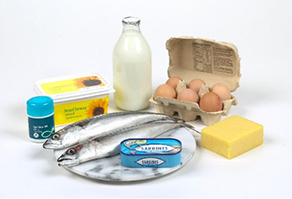When we eat, we get different vitamins and trace elements into our bodies. In our daily lives, it is important to pay attention to a carefully chosen and varied diet, which is not only important for our general health, but also for the vitality of our teeth and periodontium.
What is a vitamin?
A vitamin is an organic compound that is essential for the human body in small amounts, but which it cannot always produce in sufficient quantities and therefore needs to obtain in the form of nutrients. Vitamins are classified not by their chemical structure but by their biochemical activity. Some vitamins can be produced by the body under certain conditions, such as vitamin D in humans and sunlight. Some substances are vitamins for one organism and not for another. An example is vitamin C, which most animals can produce, but humans cannot. Essential amino acids and essential fatty acids are not considered vitamins because they are needed in large quantities. Today, the number of vitamins recognised by science has been reduced to thirteen.
A mixed diet usually covers vitamin needs, but when preparing a diet, it is important not only to ensure that the raw materials are rich in vitamins, but also to bear in mind that 10-50% of water-soluble vitamins may be lost during the preparation of food, especially when heated. Not only vitamins, but also minerals, co-factors and trace elements are needed for a healthy body.
(Source: wikipedia)

Vitamin K
Vitamin K plays a key role in the blood clotting system and therefore helps to prevent and eliminate bleeding gums. In its absence, there may be a tendency to bleeding. (gum bleeding) It is also beneficial for the detoxification function of the liver and some research suggests that it is also needed for bone formation.
It is found in vegetable oils, herbs, spinach, broccoli, cabbage and even prunes. Fortunately, most vitamin K-containing ingredients are also available in juice, so you can keep your teeth and gums healthy while you’re thirsty.

Vitamin D
It helps the absorption and incorporation of calcium, thereby protecting the health of tooth enamel. In its absence, lesions may appear on the tooth enamel. If the body does not get enough vitamin D during enamel development, white spots can appear on teeth. It is very difficult to get the amount our body needs naturally, but with pills and more sunlight we can get good results.
If possible, even on these winter days, stay out in the sun during sunny hours, take a walk, sunbathe, it’s good for your circulation and general wellbeing.
If you want to supplement your vitamin D intake with food, eat butter, egg yolks, mushrooms, caviar, cod liver oil, tofu and fortified dairy products.

Vitamin A
It helps to maintain the health of the gums, the whole periodontium and the tooth enamel.
Vitamin A is also known as the vitamin for the skin and eyes. It also affects the oral cavity and the health of the oral mucosa. In its absence, the skin and mucous membranes become dry and more prone to infection and inflammation.
Chapping of the roof of the mouth is also a symptom of vitamin A deficiency. Vitamin A is fat-soluble, so it is found in large amounts in fish oil, liver, egg yolks, butter, cream, green leafy vegetables and yellow vegetables.

Vitamin C
Vitamin C is known to have many effects: antioxidant, boosts the immune system. It soothes and prevents gingivitis, which causes bleeding gums. In its absence, bleeding from the gums can easily become commonplace. Unfortunately, our bodies are unable to store vitamin C in the long term, so we need a constant supply.
Instead of supplements, it is advisable to ensure that you get what you need daily by eating plenty of fruit and vegetables. You can make up for it in a delicious and colourful way by eating rosehips, tomatoes, parsley, blackcurrants, sauerkraut, kiwi fruit and all kinds of other citrus fruits.
If you have any questions or would like to have your teeth checked, feel free to contact our dentists, who will be happy to help you!

